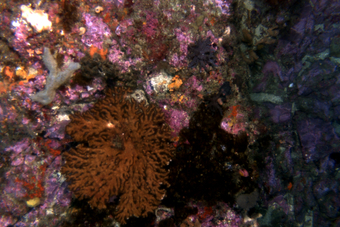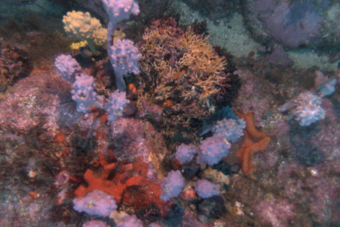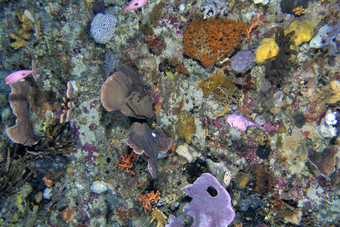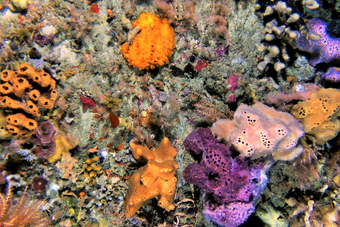Publications:
Marzloff et al. 2018
The effects of climate-driven ocean change on reef habitat-forming species are diverse and can be deleterious to the structure and functioning of seafloor communities. Although responses of shallow coral- or seaweed-based reef communities to environmental changes are a focus of ecological research in the coastal zone the ecology of habitat-forming organisms on deeper mesophotic reefs remains poorly known. These reefs are typically highly biodiverse and productive as a result of massive nutrient recycling. Based on seafloor imagery obtained from an autonomous underwater vehicle, we related change in community composition on deep reefs (30–90 m) across a latitudinal gradient (25–45° S) in southeastern Australia to high-resolution environmental and oceanographic data, and predicted future changes using downscaled climate change projections for the 2060s. This region is recognized as a global hotspot for ocean warming. The models show an overall tropicalization trend in these deep temperate reef communities, but different functional groups associate differentially to environmental drivers and display a diversity of responses to projected ocean change. We predict the emergence of novel deep-reef assemblages by the 2060s that have no counterpart on reefs today, which is likely to underpin shifts in biodiversity and ecosystem functioning.
30- 90 m
Mesophotic “mentions”
9 x (total of 4366 words)
Classification
* Presents original data
* Focused on 'mesophotic' depth range
* Focused on 'temperate mesophotic ecosystem'
Fields
Ecology
Oceanography
Climate Change
Focusgroups
Octocorallia (Soft Corals)
Overall benthic (groups)
Porifera (Sponges)
Locations
Australia - Southeastern Australia
Platforms
Autonomous Underwater Vehicle (AUV)







